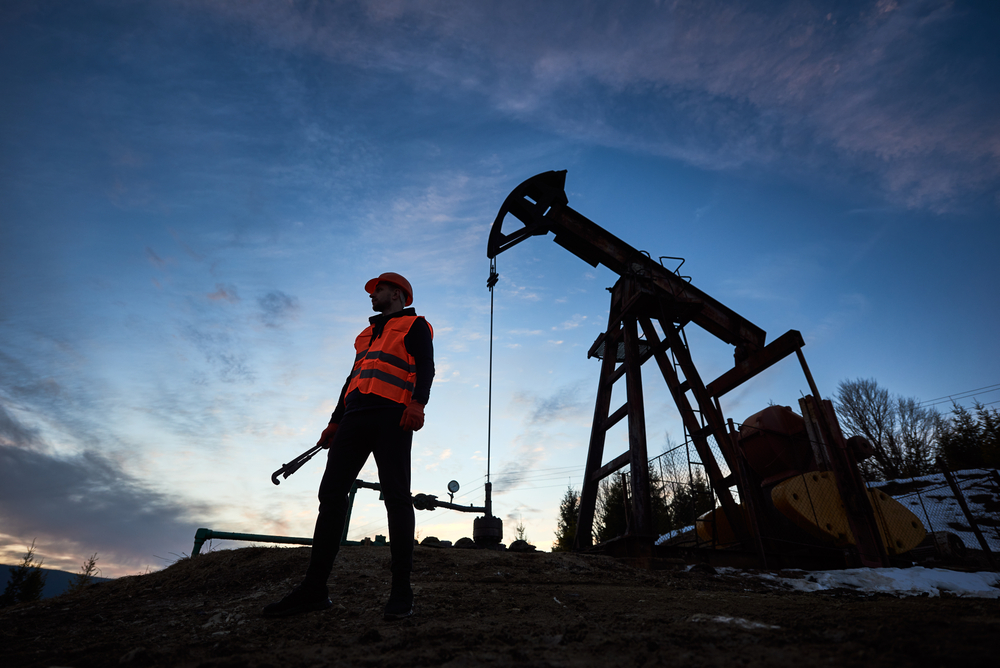Innovations in Oilfield Equipment Design That Prioritize Environmental Sustainability
The oil and gas industry has long been seen as a key driver of economic growth but also a significant contributor to environmental challenges. However, the tide is turning. With increasing global focus on climate change and environmental conservation, oil and gas companies are now seeking innovative ways to reduce their carbon footprint. Innovations in oilfield equipment design that prioritize environmental sustainability are becoming more widespread, helping to balance energy demand with ecological responsibility. These advancements represent the future of green oilfield operations.
Environmental Sustainability in Oil and Gas: A Growing Priority
Environmental sustainability in oil and gas has become a critical focal point for industry leaders. This shift has been driven by various factors, including international climate agreements, government regulations, and rising public demand for cleaner energy practices. The oil and gas sector is now prioritizing efforts to reduce greenhouse gas emissions, minimize water usage, and prevent habitat disruption. As such, the development of innovative oilfield technologies is essential to meeting these new standards of environmental responsibility.
One of the key aspects of achieving environmental sustainability in the oil and gas industry is through the design and deployment of eco-friendly oilfield equipment. These technologies are being engineered to lower the environmental impact of traditional operations, which have historically been resource-intensive and polluting.
The Role of Innovation in Oilfield Technologies
Technological advancements in oilfield equipment are critical to improving environmental sustainability in oil and gas. By innovating new tools and processes, companies can reduce their reliance on harmful practices while improving efficiency. This shift not only benefits the environment but also helps operators lower operational costs and improve energy efficiency.
Innovations in oilfield technologies fall into several categories, including emissions reduction, water conservation, waste management, and renewable energy integration. Each of these areas is contributing to the future of green oilfield operations and pushing the boundaries of what is possible in environmentally conscious resource extraction.
1. Emissions Reduction Technologies
One of the primary environmental concerns in oilfield operations is the release of greenhouse gases, especially methane, a potent gas that has a higher impact on climate change than carbon dioxide. Reducing emissions in oil and gas extraction is crucial for curbing the industry’s carbon footprint. Fortunately, a number of innovations in oilfield equipment are helping to reduce these emissions.
Flare Gas Recovery Systems
Flare gas recovery systems (FGRS) are an essential innovation in minimizing the environmental impact of oilfield operations. In traditional settings, excess gas is burned off in a process known as flaring, which releases significant quantities of carbon dioxide and other pollutants into the atmosphere. FGRS allows operators to capture and repurpose flare gas, which can then be used to generate power or processed into commercial products. This technology not only prevents waste but also curtails harmful emissions.
Electrification of Drilling Equipment
Electrification is another significant innovation aimed at emissions reduction. Traditionally, oilfield drilling equipment is powered by diesel engines, which are major contributors to greenhouse gas emissions. By transitioning to electric-powered drilling rigs and hydraulic fracturing equipment, companies can significantly reduce the carbon footprint of their operations. Many oilfields are now integrating grid electricity or renewable energy sources like solar and wind to power these systems, further enhancing sustainability.
2. Water Conservation Technologies
Water is a vital resource in oilfield operations, particularly in hydraulic fracturing (fracking), which requires vast quantities of water. Concerns over water scarcity and pollution have led to the development of technologies that conserve water and protect water sources from contamination.
Water Recycling Systems
Water recycling systems are a game-changer for environmentally sustainable oil and gas operations. These systems treat and reuse water from hydraulic fracturing and other drilling processes, reducing the need for fresh water. Advanced filtration technologies can remove contaminants, allowing water to be recycled multiple times, which helps conserve valuable freshwater resources and lowers the overall environmental impact of oil extraction.
Nanotechnology for Water Treatment
Nanotechnology is playing a growing role in water conservation and treatment in oilfields. By using nanomaterials, companies can filter and purify water more effectively, removing harmful substances such as heavy metals, hydrocarbons, and chemicals. This technology ensures that water can be safely reused or returned to the environment without causing ecological harm, making it an essential tool in achieving environmental sustainability in oil and gas operations.
3. Waste Management Innovations
Waste management in oilfields is a significant challenge, with operations often generating large amounts of solid and liquid waste. Innovative oilfield technologies are being developed to address this issue, turning waste into valuable resources and minimizing the environmental impact.
Solid Waste-to-Energy Systems
Solid waste-to-energy systems are an emerging technology that converts oilfield waste into usable energy. By incinerating waste materials in a controlled environment, these systems generate heat, which can be converted into electricity or used to power other equipment on-site. This not only reduces the volume of waste that needs to be disposed of but also helps lower the overall energy consumption of the oilfield.
Biodegradable Drilling Fluids
Traditional drilling fluids contain chemicals that can be harmful to the environment, particularly if they spill or leak into the surrounding ecosystems. Biodegradable drilling fluids are an innovative solution that reduces this risk. These fluids are made from environmentally friendly materials that break down naturally without causing harm, ensuring that drilling operations can be carried out with minimal ecological disruption.
4. Renewable Energy Integration
A major development in the future of green oilfield operations is the integration of renewable energy into oil and gas production processes. Oilfields are increasingly using renewable energy sources to power their operations, reducing reliance on fossil fuels and minimizing carbon emissions.
Solar and Wind Power for Remote Sites
Remote oilfields often rely on diesel generators to meet their power needs, but renewable energy technologies such as solar and wind power are providing cleaner alternatives. By harnessing solar and wind energy, oilfields can generate electricity for on-site operations, including drilling, pumping, and processing. Not only does this reduce emissions, but it also lowers operational costs by decreasing the need for expensive fuel transportation to remote locations.
Hybrid Energy Solutions
Hybrid energy solutions, which combine renewable energy with traditional power sources, are gaining traction in the oil and gas industry. These systems optimize energy use by drawing on renewables when available and switching to fossil fuels as a backup. This approach ensures that oilfield operations remain efficient and reliable while reducing overall environmental impact. Hybrid energy systems also make it easier to transition to fully renewable energy sources in the future as technology continues to advance.
The Future of Green Oilfield Operations
The future of green oilfield operations lies in the continued development and adoption of innovative oilfield technologies that prioritize environmental sustainability. As the industry faces increasing pressure to reduce its environmental impact, these technologies will play a critical role in shaping how oil and gas are extracted and produced.
Advanced Monitoring and Automation
One of the most promising trends for the future is the integration of advanced monitoring systems and automation into oilfield operations. Digital sensors and real-time monitoring systems allow companies to detect leaks, emissions, and inefficiencies, enabling immediate corrective action. Automated equipment can be programmed to operate more efficiently, reducing waste and minimizing the environmental footprint of operations.
Carbon Capture and Storage (CCS)
Carbon capture and storage (CCS) technology is another vital innovation that could revolutionize the oil and gas industry’s approach to sustainability. By capturing carbon dioxide emissions from oilfield operations and storing them underground, companies can prevent large quantities of CO2 from entering the atmosphere. CCS could become a key tool in the industry’s effort to achieve net-zero emissions.
Conclusion
The oil and gas industry is at a pivotal moment in its journey toward environmental sustainability. The development and implementation of innovative oilfield technologies are crucial for reducing the environmental impact of energy production while maintaining the global supply of oil and gas. From emissions reduction and water conservation to waste management and renewable energy integration, these innovations are shaping the future of green oilfield operations. By prioritizing environmental sustainability in oil and gas, the industry can contribute to a cleaner, more sustainable energy future for all.
Need an Oilfield Equipment Supplier in Tonkawa, OK?
Here at Contractors Oilfield Service & Supply LLC, we’re here to support your oilfield operations with quality products and exceptional customer service. Whether you need drilling supplies, downhole pipes, storage tanks, or production equipment, we have over 10,000 items in stock and the expertise to guide you. Since 1999, we’ve proudly served the greater Tonkawa area, and we’re ready to assist you with any questions or urgent needs—any time, day or night. Give us a call today, and let us help keep your operations running smoothly!

